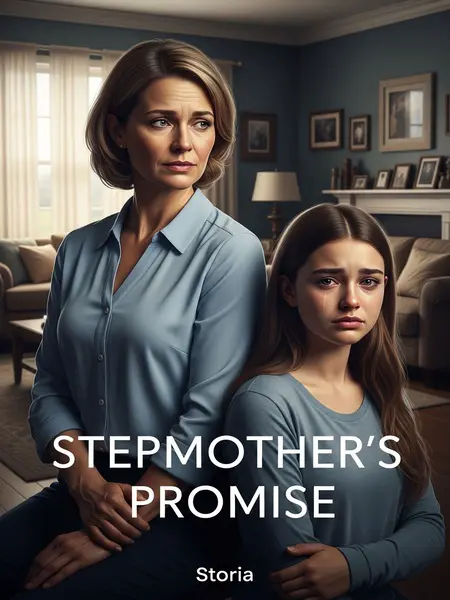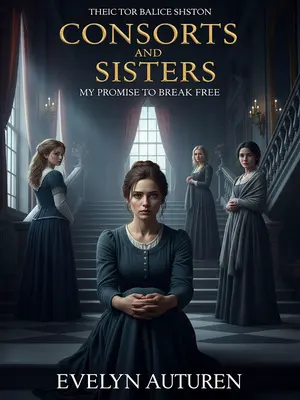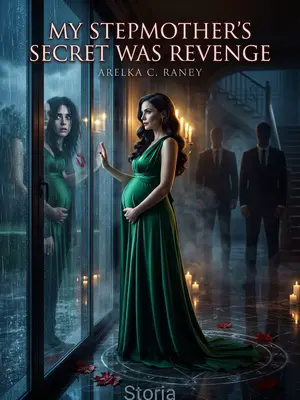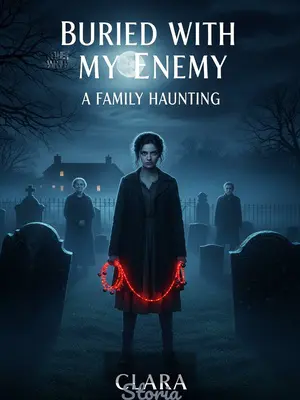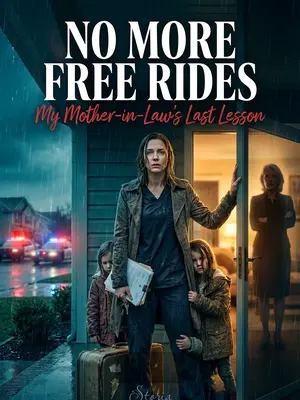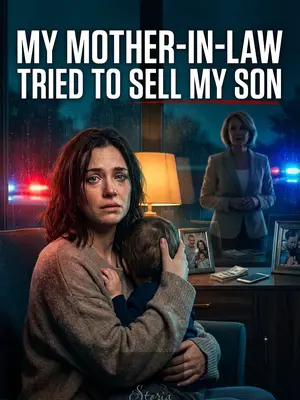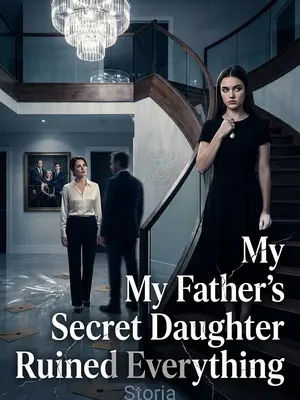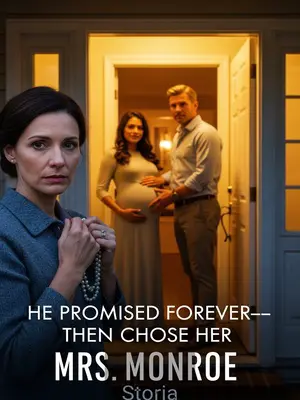Chapter 1: The Day My World Changed
On the very first day she became my stepmom, she spanked me so hard my butt was black and blue.
That memory stuck with me. Even now, when I think back, I can almost feel the sting—the shock, the way the world seemed to spin like I’d just stepped off a carnival ride. From that moment on, I started a daily tug-of-war with her, all the way until senior year—the year of the SATs—when my dad passed away.
When everyone expected she’d bail on me, she looked me straight in the eye and said, “Don’t think a stepmom can’t be a real mom.”
Her words just hung there, like a dare, thick in the air. She didn’t flinch, just held my gaze, voice steady. Something shifted inside me—like the game had new rules now, and suddenly I wasn’t sure I even wanted to play.
"Jamie, don’t blame Mom. Mom really had no choice."
At just seven, I couldn’t wrap my head around my birth mom’s last words before she left. All I could do was sob until my whole body shook.
My cries echoed down the empty hallway, bouncing off faded wallpaper and a slammed door. I remember clutching my stuffed rabbit so hard its ear tore, snot and tears smeared all over my cheeks, wishing—hoping—if I cried hard enough, she might come back.
"Hey, isn’t Jamie’s mom too heartless? How could she just walk out on such a little kid?"
Mrs. Martinez from next door wrapped me up in her arms, her mouth pressed tight, her eyes shining with something like pity, while my dad stood by, head bowed, his trembling hands clutching Grandma Carol’s portrait close to his chest.
Her perfume was a mix of gardenias and clean laundry. She pressed me into her soft arms, murmuring, “Poor baby, poor baby,” while Dad stood off to the side, lost in his own storm. The living room felt huge and way too quiet.
"Every family’s got elders who fall ill. Money comes and goes, but to throw away a good family like that—what kind of woman does that?"
Even though she was just our neighbor, Mrs. Martinez was fiercely loyal to my dad and me.
She’d bring over lasagna or a casserole, her voice sharp with outrage. Sometimes she’d slip a dollar bill into my pocket, whispering, “For a treat, honey.” For the first time, I realized people outside our house cared that our family was falling apart.
Six months earlier, when Grandma Carol fell seriously ill out of nowhere, Dad searched everywhere for doctors. He spent all our savings, went deep into debt, but still couldn’t save her.
I remember the sound of Dad’s shoes pounding the kitchen floor at all hours, the late-night phone calls, the stacks of insurance forms. The house always smelled faintly of rubbing alcohol and takeout. I learned to hear the difference between hope and desperation in his voice.
In the process, my mom just fell apart, too.
She started staying in bed, the curtains always drawn. Her laughter vanished. I’d tiptoe past her room, listening for the sound of her breathing, terrified she’d disappear at any moment.
Right after Grandma’s funeral, she left Dad and me, taking the last of the funeral money and vanishing without a trace.
The day she left, I came home to an empty house. The air felt thick, heavy. Dad’s eyes were rimmed red, like he’d been crying for hours. The envelope with the funeral money was gone. There was no note. Just silence.
"Joe, how will you and your girl get by now?"
"Don’t worry, Lisa. I can raise her myself."
Dad reached for me, but I pushed him away, sobbing, "I want Mom! I want Mom..." My voice cracked, lost in a flood of tears.
I flailed against his chest, snot and tears everywhere, my throat raw from screaming. He tried to hold me, but I wriggled free, curling up on the floor, pounding my fists, as if a tantrum could bring her back.
My wailing tore at Dad’s heart. He turned away, his shoulders shaking so hard I thought he might break.
He tried to hide it, but I caught the way his hands shook, the way he bit his lip to keep from crying out loud. That was the first time I realized grown-ups could break, too.
From deep grief to slow acceptance, I survived three long years. In a blink, I was in fourth grade at Maple Heights Elementary.
Those years crawled by. I learned to make my own sandwiches, to check my own homework, to turn off the TV and tuck myself in at bedtime. I grew up fast—the way kids do when there’s no one else to count on.
Growing up too fast in a single-parent home made me sensible and hardworking, with top grades—I even skipped a grade. But it also made me hypersensitive.
I started noticing the way teachers looked at me when I handed in perfect assignments, the way other moms whispered at pickup. I kept my feelings locked up tight, always bracing for the next disappointment.
Just like earlier, when I shot a cold look at the woman Dad introduced.
"Jamie, this is Linda Harper—Aunt Linda. From now on, we’ll all live together."
Dad blushed as he introduced us, smoothing his hair and glancing between us. His voice wobbled, like he was waiting for me to explode.
"Hi, Jamie, Aunt Linda brought you a toy. See if you like it."
She smiled, holding out a bag with a stuffed puppy peeking out. Her voice was gentle, but I could hear the hope in it.
"I don’t want it."
Without even glancing in the bag, I turned and marched straight to my room, my footsteps heavy on the stairs.
I slammed the door, threw my backpack on the bed, and stared at the ceiling. Their voices drifted through the wall, muffled but sharp.
"Linda, sorry, I spoiled her..."
Dad’s guilty explanation only made me angrier. I pressed my ear to the door, listening hard.
I pressed my ear to the door, listening. Every word felt like a betrayal, like he was apologizing for me instead of standing up for me.
"She’s still young. There’s a long road ahead. If I treat her right, she’ll come around."
Linda’s voice was patient, almost too calm. I wondered if she actually believed that or if she was just trying to convince herself.
I figured my attitude would scare Linda off. But to my surprise, not long after, she actually moved in.
I expected her to give up, to back out and leave us alone. Instead, she showed up one afternoon with suitcases and a determined glint in her eye. She looked like she was gearing up for a battle, not settling into a family.
It was a Friday. When I got home from school, I saw the table piled high with homemade mac and cheese, fried chicken, and mashed potatoes.
The kitchen smelled like a Southern diner—warm, buttery, with a hint of fried chicken and sweet cornbread. There was a vase of wildflowers, mismatched plates, napkins folded just so. It almost looked like a holiday, but I felt like an extra at someone else’s party.
"Jamie, go wash up. We’re having a feast tonight."
Linda’s permed hair was styled just so, her makeup light. Dad looked a little tipsy, cheeks flushed with happiness.
He winked at me, holding up a can of Sprite like it was champagne. Linda smiled, her lipstick just a little brighter than usual. There was a nervous energy in the air—the kind you get before a big announcement.
Later, I learned they’d gotten married that day.
No church, no fancy dress—just a courthouse signature and a promise over mashed potatoes. I found out by accident, but it made sense. The whole night felt like a secret.
"Jamie, sit down. We have something to tell you."
The word "we" stabbed at the part of me that had to grow up too fast. So Dad had already chosen a stranger over me.
My chair screeched against the floor as I sat. I crossed my arms, bracing myself. The "we" sounded like an ultimatum, not an invitation.
Hurt, angry, embarrassed—all those feelings crashed in at once.
My face burned. I wanted to scream. I wanted to run. I wanted to break something. But I just sat there, jaw clenched, staring at my shoes.
"From now on, Aunt Linda—oh, you need to change how you call her. Aunt Linda is your mother now."

